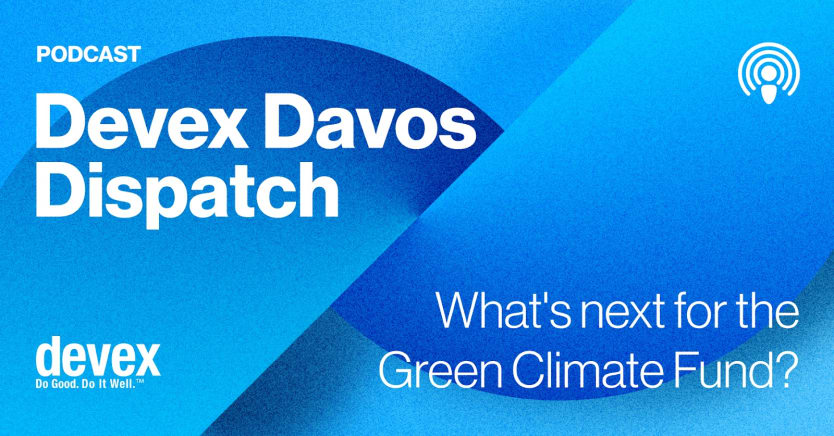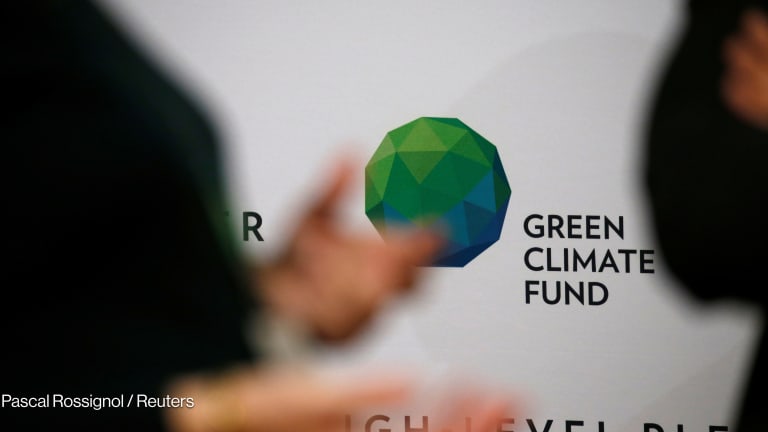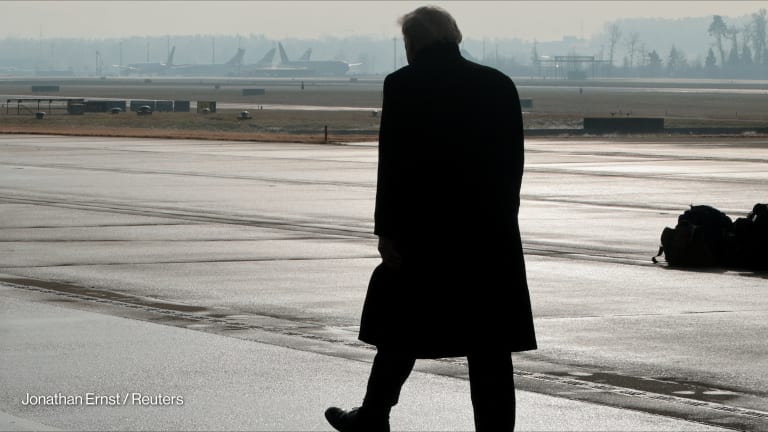Listen to "What's next for the Green Climate Fund?" on Spreaker.
Listen on Spotify, Apple Podcasts, or search “Devex” in your favorite podcast app.
It’s a big moment for the United Nations Green Climate Fund. Its funding levels hit a record high following the climate conference COP 28, with several countries adding contributions to its second replenishment that sent its total soaring past its $10 billion goal to $12.8 billion. GCF’s Executive Director Mafalda Duarte oversaw the replenishment after assuming the role only three months prior, having departed her previous job as the head of the Climate Investment Funds in June. Somewhere in there, she was also at the Africa Climate Summit, the U.N. General Assembly, and multiple other global engagements.
“Quite intense,” she acknowledged to Devex President and Editor-in-Chief Raj Kumar in Davos, Switzerland, the latest stop on her whirlwind travel agenda.
But if Duarte has been busy, it’s because she’s making huge strides at an organization that was in a notably rocky place a few years ago. On this episode of Davos Dispatch, a series housed under our regular weekly podcast, This Week in Global Development, Duarte gives us the scoop on what’s next for GCF and its role in climate change mitigation and adaptation. Here are some of the key takeaways from that conversation.
Engaging across sectors
Cross-cutting partnerships are the name of the game at Davos, and GCF is well positioned for that job. One of the fund’s main strengths, Duarte says, is its flexibility to work across a network of partners spanning governments, multilateral development banks, the private sector, and so on.
It’s clear from the conversations at Davos that to scale at the speed required, the public, private, and philanthropic sectors will have to work together. On one hand, Duarte says she’s excited about convening partnerships to help governments achieve ambitious goals. On the other, she’s looking forward to fostering private-sector innovations.
“We are just scratching the surface of the potential of GCF to actually make the most of all of the tools that it has and bring some of these partners together,” she says.
Enabling MDBs
With the World Bank’s reform agenda underway, Duarte says she sees GCF in an enabling role.
“The conversation is that the multilateral development banks are not providing the type of capital that we are providing,” she says. “[Private sector investors] often say that we are the only ones that actually come in at the scale and with the flexibility, because the multilateral development banks can’t go that far.”
Duarte points out that in terms of industry and technology, things are moving fast, and the private sector feels that governments need to catch up. The World Bank and other MDBs, she says, “need to double down” on their efforts to help position governments to not only get up to speed with change already underway, but also what’s coming.
“We are here and very interested in discussing with them, how can we be enablers of them in their attempts of unlocking private capital?”
Reaching the most vulnerable
Another key piece of GCF’s agenda is to drum up private sector innovation by de-risking investments for equity and impact funds. It’s also about reaching the most vulnerable.
Some private sector deals are doing that already, Duarte says, but not at the scale necessary, nor in the most fragile environments. “What is it that we need to do more of, and which type of partnerships, so that we can reach the most vulnerable?” she asks.
Much of that will have to do with changing the culture of large organizations. Duarte maintains that there’s a crucial need to rebalance the competing forces of risk aversion and the need to achieve impact. Right now, she says, “we don’t have the right balance.” But with the threat of climate change mounting at a faster rate than previously thought, that calculus needs to change fast.
“We need to be prepared to do things differently. We need to be prepared to take on more risk,” she says. “Because at least we have a chance if we do that. If we go at the pace that we are going right now, we will not have a chance.”









